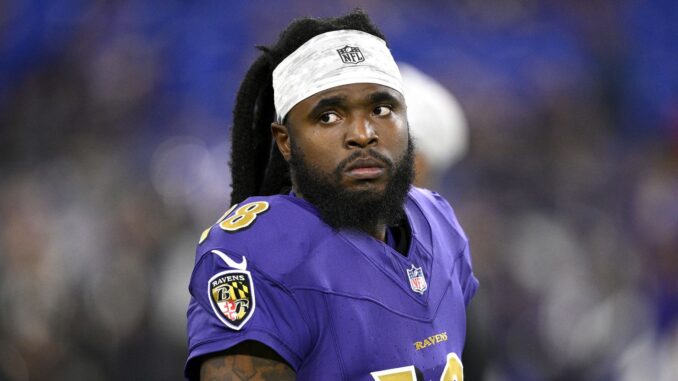
Ravens Claim They Did Their Homework On Diontae Johnson Trade: ‘We Understood The Risks
The Baltimore Ravens thought they could succeed where the Carolina Panthers failed with Diontae Johnson, but they were mistaken. However, according to them, they anticipated the outcome. Despite having his rights, the Ravens have no plans to play him again. After releasing him, they claimed Johnson off waivers from the Houston Texans, but since it happened during the postseason, his rights won’t be fully theirs until after the season ends. They were mainly interested in any potential compensatory pick they could receive, understanding that this move came with risks.
“We saw the Diontae Johnson trade as an opportunity to strengthen a position group with a player we knew well,” Ravens GM Eric DeCosta explained. “We did our research, understood both the risks and rewards, and didn’t think the cost would be prohibitive.”
DeCosta acknowledged that they knew it wasn’t a guaranteed success. The trade ended up being far from a win for the Ravens. Johnson barely played, and when he did, he couldn’t make an impact. Eventually, he chose not to play anymore, leading to his suspension and eventual release.

“It didn’t work out,” DeCosta admitted. “We always try to minimize risk.” In the trade, the Ravens sent a fifth-round pick to the Panthers for Johnson and a sixth-round pick, with Baltimore holding a higher fifth-rounder and Carolina a lower sixth-rounder. In the end, DeCosta argued, they didn’t lose much—just about half a round in terms of value.
“As a GM, you’re always weighing the risks and rewards,” DeCosta said. “In this case, I didn’t see much downside. We understood the risks, like Diontae Johnson possibly being unhappy with his role.
Although DeCosta insists they did their homework, it seems the Ravens didn’t discuss Johnson’s role with him beforehand. They assumed he would either accept whatever was asked of him or not, and they were prepared to deal with the fallout.
This whole situation raised some questions about the Ravens’ decision-making process. Why make a trade that, even with minimal risk, carried potential complications? The Steelers traded Johnson for a reason, and it wasn’t due to his football skills. When a team trades for a player and then moves him at a significant loss, it raises red flags. The Ravens had plenty of warning signs that the trade wouldn’t work out. It didn’t look great for the team, but after addressing the issue at the end of the season, it will likely be forgotten. If Johnson eventually helps them earn a compensatory pick in 2026, the trade might even end up looking like a savvy move.
Leave a Reply